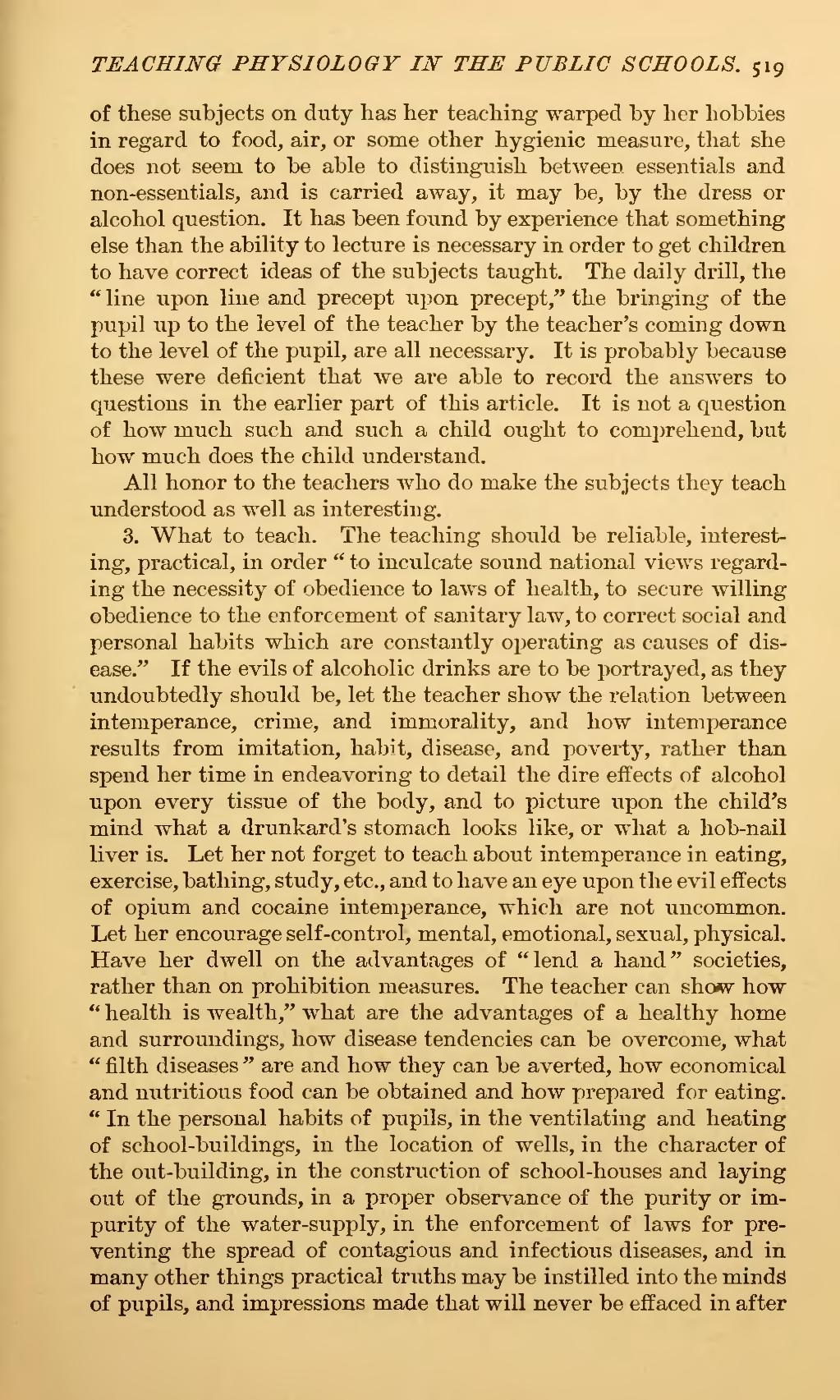of these subjects on duty has her teaching warped by her hobbies in regard to food, air, or some other hygienic measure, that she does not seem to be able to distinguish between essentials and non-essentials, and is carried away, it may be, by the dress or alcohol question. It has been found by experience that something else than the ability to lecture is necessary in order to get children to have correct ideas of the subjects taught. The daily drill, the "line upon line and precept upon precept," the bringing of the pupil up to the level of the teacher by the teacher's coming down to the level of the pupil, are all necessary. It is probably because these were deficient that we are able to record the answers to questions in the earlier part of this article. It is not a question of how much such and such a child ought to comprehend, but how much does the child understand.
All honor to the teachers who do make the subjects they teach understood as well as interesting.
3. What to teach. The teaching should be reliable, interesting, practical, in order "to inculcate sound national views regarding the necessity of obedience to laws of health, to secure willing obedience to the enforcement of sanitary law, to correct social and personal habits which are constantly operating as causes of disease." If the evils of alcoholic drinks are to be portrayed, as they undoubtedly should be, let the teacher show the relation between intemperance, crime, and immorality, and how intemperance results from imitation, habit, disease, and poverty, rather than spend her time in endeavoring to detail the dire effects of alcohol upon every tissue of the body, and to picture upon the child's mind what a drunkard's stomach looks like, or what a hob-nail liver is. Let her not forget to teach about intemperance in eating, exercise, bathing, study, etc., and to have an eye upon the evil effects of opium and cocaine intemperance, which are not uncommon. Let her encourage self-control, mental, emotional, sexual, physical. Have her dwell on the advantages of "lend a hand" societies, rather than on prohibition measures. The teacher can show how "health is wealth," what are the advantages of a healthy home and surroundings, how disease tendencies can be overcome, what "filth diseases" are and how they can be averted, how economical and nutritious food can be obtained and how prepared for eating. "In the personal habits of pupils, in the ventilating and heating of school-buildings, in the location of wells, in the character of the out-building, in the construction of school-houses and laying out of the grounds, in a proper observance of the purity or impurity of the water-supply, in the enforcement of laws for preventing the spread of contagious and infectious diseases, and in many other things practical truths may be instilled into the minds of pupils, and impressions made that will never be effaced in after
